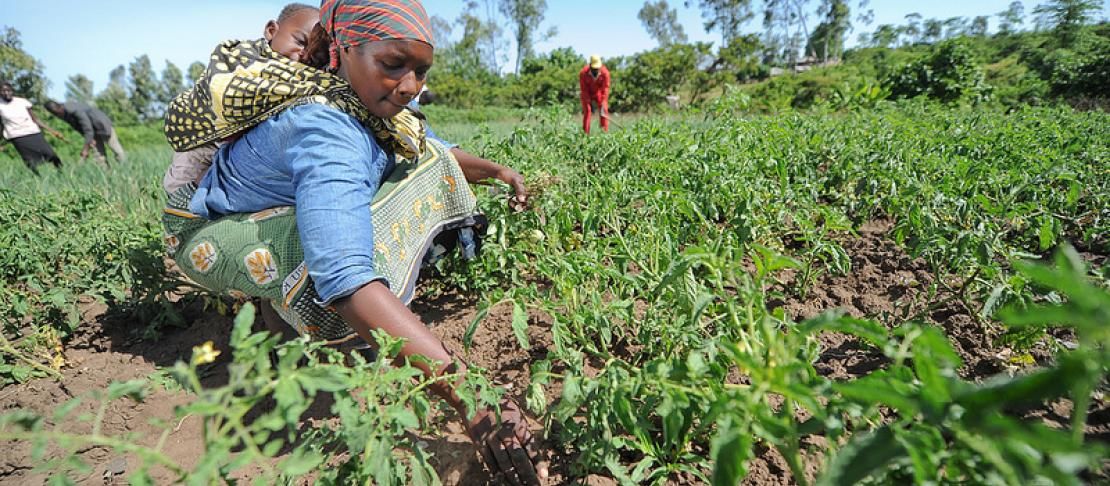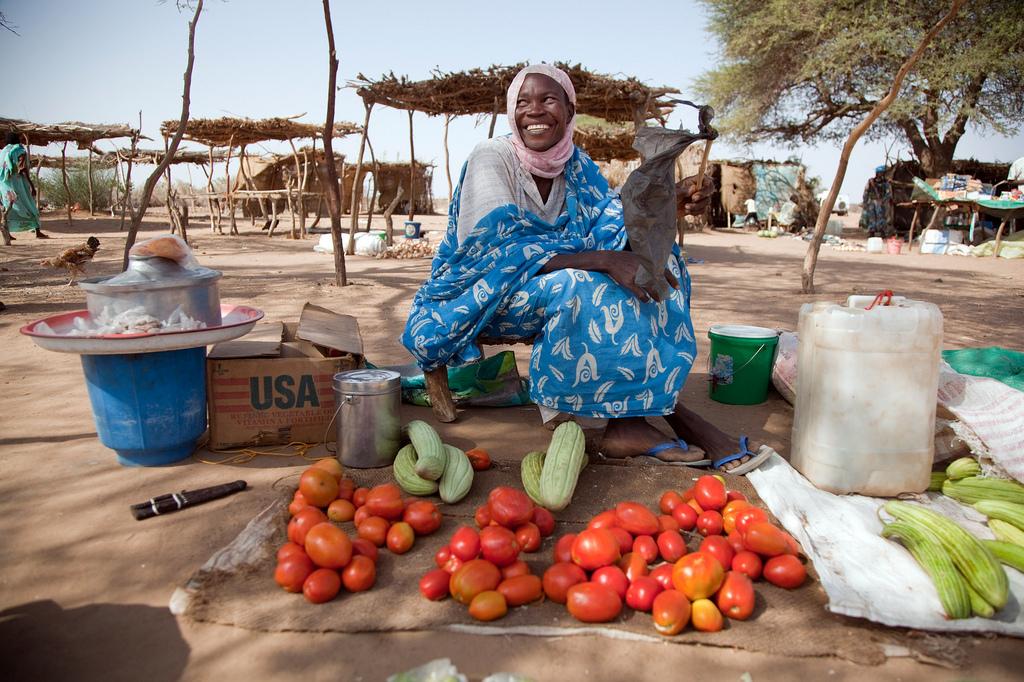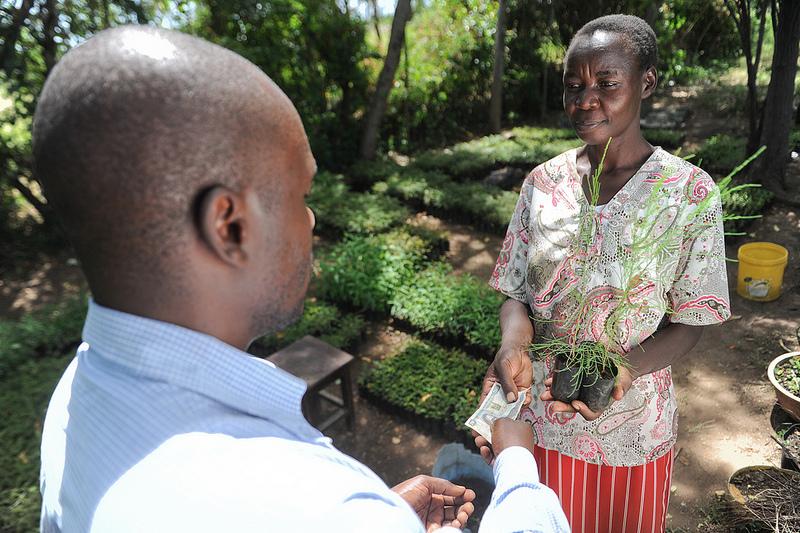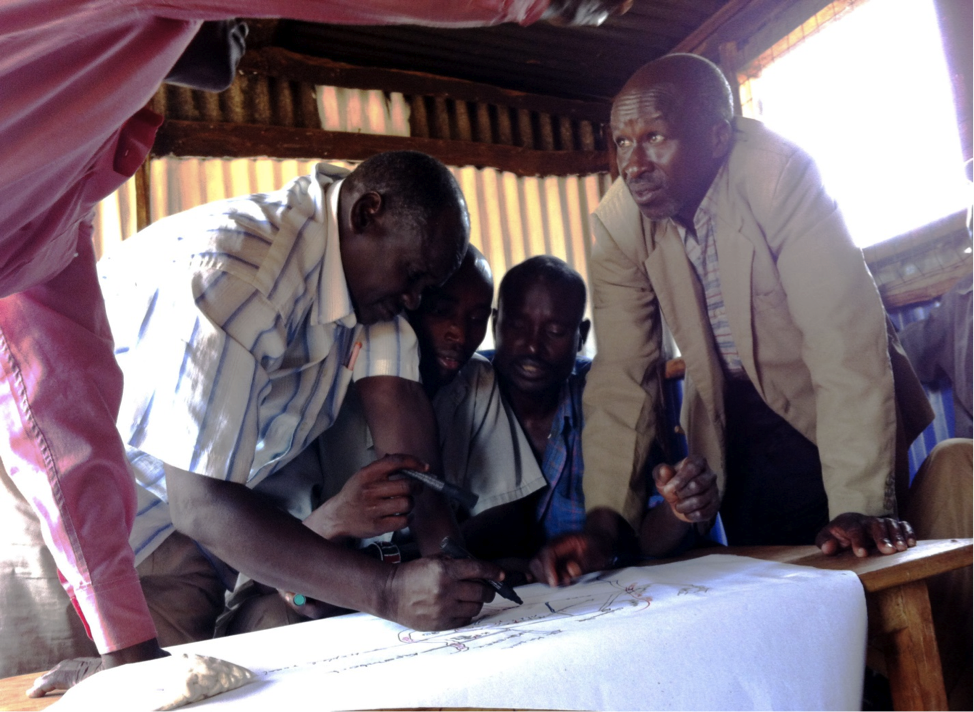Capturing gender perceptions through participation

Ongoing research activities from theme Linking Knowledge to Action seek to better capture issues of equity. Gender roles, myths and perceptions could impact how men, women, young and old adapt to climate change and manage associated risks.
"You see, the fruits will shrivel if women plant them", a young man enthusiastically explained during a men's focus group meeting in Komango village in Western Kenya. But when the women from the same village considered the statement later that day, they let out a booming laugh. They said that no one in the village, especially not women, took this tree planting taboo to heart.
It seems that young men have been trying to perpetuate the myth in order to corner the market on high-income products like fruits and tomatoes. Some women have indeed been pushed out of the tomato market in the lower Nyando area of Kenya as a result of this myth, but since the late 2000s many have been hitting back by planting trees and practicing horticulture

Due to myths, women in kenya have been kept from growing and selling tomatoes and planting trees. Now they are fighting to get back in to this lucrative market to earn a livelihood. Photo: A. Gonzalez/UNAMID
The myth of shriveling fruit reveals a dynamic story of change in Kenya’ smallholder farming communities that centers around the access, control and power relations that define men and women’s capacity to adapt to climate change.
As unpredictable rains and extreme weather events disrupt the cultivation of staple crops like maize and sorghum, resulting food insecurity affects the vulnerability of men, women, and other groups differently. Drivers of changing gender roles like those in Komango village are by no means uniform.
Could tree planting by women lead to early deaths for men?
In neighboring Kamuana village, the taboo surrounding tree planting holds that if women plant trees their husbands would meet early deaths. It was a common belief until 2011.
That year the CGIAR Research Program on Climate Change, Agriculture and Food Security (CCAFS) partner Vi Agroforesty engaged directly with both men and women’s cultural perceptions regarding tree production in the village, and turned the situation around.

Cultural perceptions and gender roles impact tree planting. In some areas in kenya it was believed that if women plant trees their husbands would meet early deaths. K. Trautmann
By studying Vi Agroforestry’s innovative approach, we learned that capturing the gender dimensions of agriculture as well as local experiences of vulnerability is critical for research and projects designed to reduce women’s vulnerability to climate change.
As a means of rapidly assessing the complexity of changes occurring in communities like Komango and Kamuana villages from a climate change perspective, we are developing a set of participatory and gender sensitive methods for climate resilient agricultural research.
The purpose is to capture issues of equity at the community level through a process that emphasizes the inclusion of women, disabled, child heads of household and other vulnerable groups.

Men's focus group from Kenya creating a community resource map. Participatory activities can reveal perceptions of gender roles, and lead to a re-thinking of these perceptions. Photo: N. Ferdous
Upcoming gender research activities
We are building on the 2012 CCAFS and FAO Training Manual, "Gender and Climate Change Research in Agriculture and Food Security for Rural Development", but making major revisions so that our development and research partners can engage with communities in the co-production of knowledge when designing transformative gender and climate change programs.
The new manual will cover climate resilient agriculture, tools for establishing common ground for the co-production of knowledge, climate analogues, climate information, mitigation, and innovation networks. The approach uses mixed methods and flexibly designed toolsets to encourage both researchers and development organizations to explore climate resilience based on their project needs.
CCAFS has a well established system of quantitatively measuring change in our sites, and this data is freely available to the public. Now CCAFS is working with its partners to engage communities regarding the rich diversity of stories, myths and perceptions that reflect the complexity of climate change adaptation and give depth to our impact results on food security, health, poverty and natural resources.
Nafisa Ferdous is joining CCAFS as a Gender and Social Learning Consultant and Christine Jost works as Science Officer for the Linking Knowledge with Action theme. Follow us on Twitter @cgiarclimate for the latest research-updates on gender and equity.



